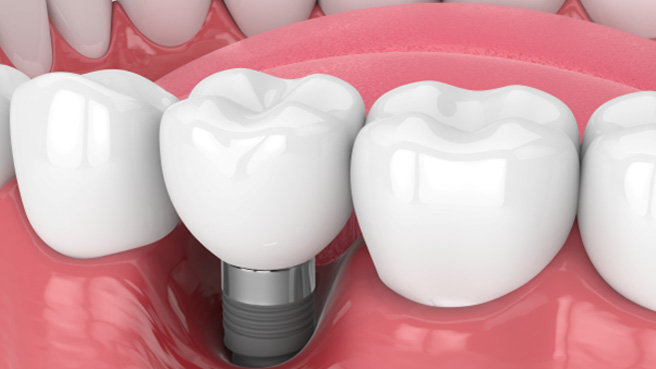Dental Implant Failure & Salvage – Irving, TX
Stopping Infection & Preserving Your Smile
The dental implant process takes place over several months, and in some cases up to a year, which is why it can be so devastating to begin experiencing the signs of dental implant failure in Irving. After all of your hard work you put in to restoring your smile, our team’s top priority is to salvage it. If you notice any symptoms of dental implant failure, call our team today for an examination.
Why Choose Daily Smiles MacArthur Dental & Orthodontics for Dental Implant Salvage?
- Dentist with Additional Training in Implant Placement
- We Accept & Maximize Dental Insurance
- One Office for All of Your Smile Needs
What Causes Implant Failure?

Dental implants can fail at any point in their lifetime, including directly after they’re surgically placed within the mouth, and even years later. However, the most common cause of implant failure is actually due to an infection called peri-implantitis. This is typically the result of poor oral hygiene practices or habits (including smoking) that allow harmful oral bacteria to accumulate around the site of the dental implant. Over time, the bacteria can lead to deterioration of the supportive gum tissue and bone that anchor your dental implant in place.
Dental implants can also fail as a result of:
- Physical trauma to the mouth
- Failed osseointegration (when the implants don’t fuse with the jawbone after surgery)
- Medical conditions that impact the body’s ability to support your dental implants
Signs of Dental Implant Failure

Depending on the cause of your dental implant failure, you may experience different symptoms than another person who is also dealing with implant failure. Some of the most common signs to keep an eye out for include:
- Pain near the site of your dental implant. While soreness and some bleeding may be normal directly after your surgery, you shouldn’t experience pain in that area of the mouth after you’ve healed for your implant placement procedure.
- An implant is loose. It’s not uncommon for a restoration to become loose, which can be easily fixed by securing it better to your dental implant, but the implant post itself should never feel loose.
- Pus and inflammation around the implant site. These are common signs of an infection and require urgent attention.
- Discomfort while chewing. After your implants have been restored and your procedure is complete, you should never feel pain while chewing.
How Does Dental Implant Salvage Work?

Dr. Rafiq Hirji’s treatment plan will be based off of his findings after examining your mouth. In some cases, our team may be able to treat the issue right away, like if your restoration is loose. However, cases where peri-implantitis, physical trauma, or more complex issues are involved may require a wide range of services. Based on your symptoms, we could recommend a deep dental cleaning, antibiotics, or other methods to help minimize the spread of and control infection.
Our top priority is to make sure you get to keep your smile, so we’ll always try our best to treat the issue and preserve your dental implants. However, in some cases, it may be necessary for our team to remove the dental implant to help your oral health get back on the right track and administer more thorough treatment.
